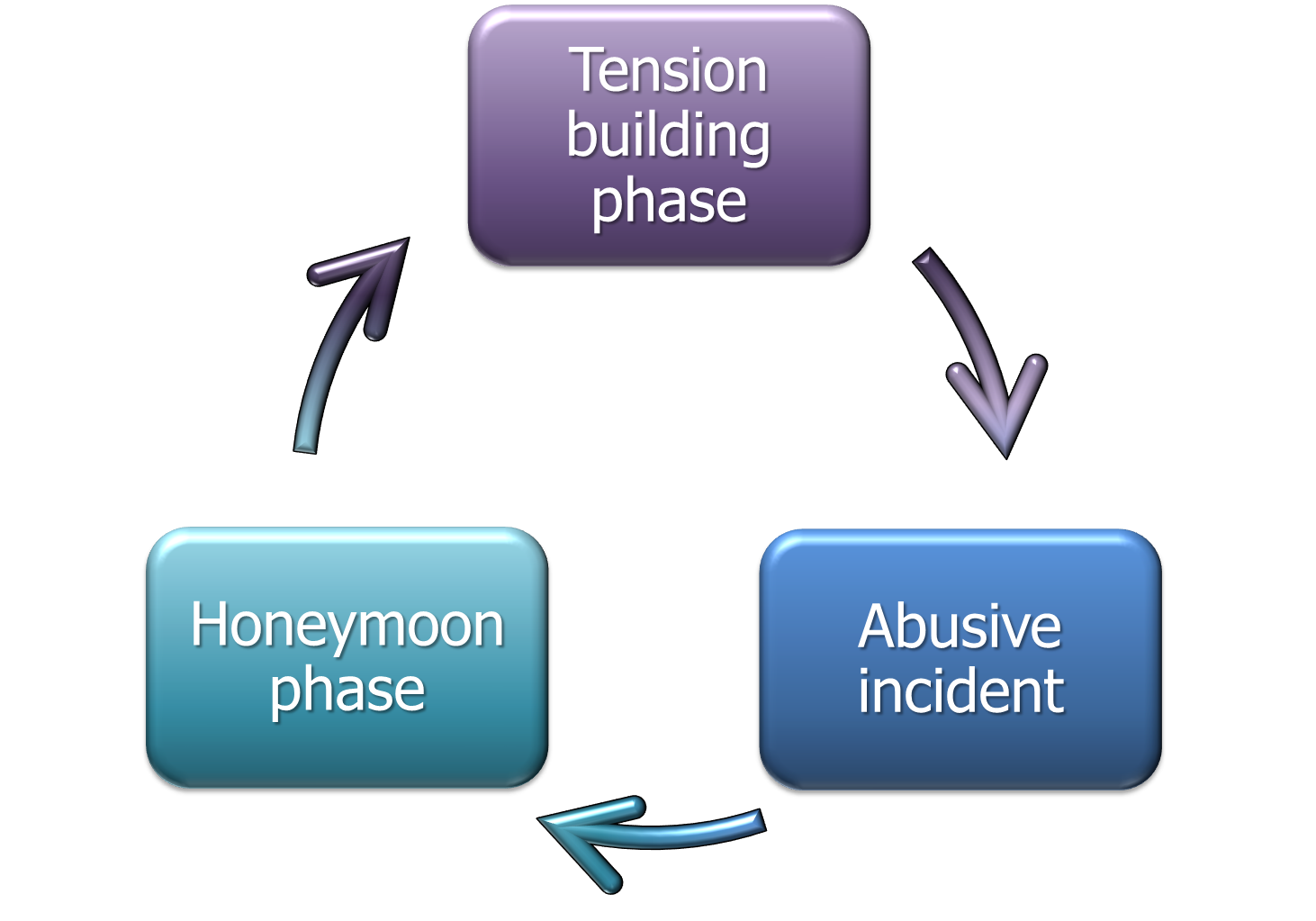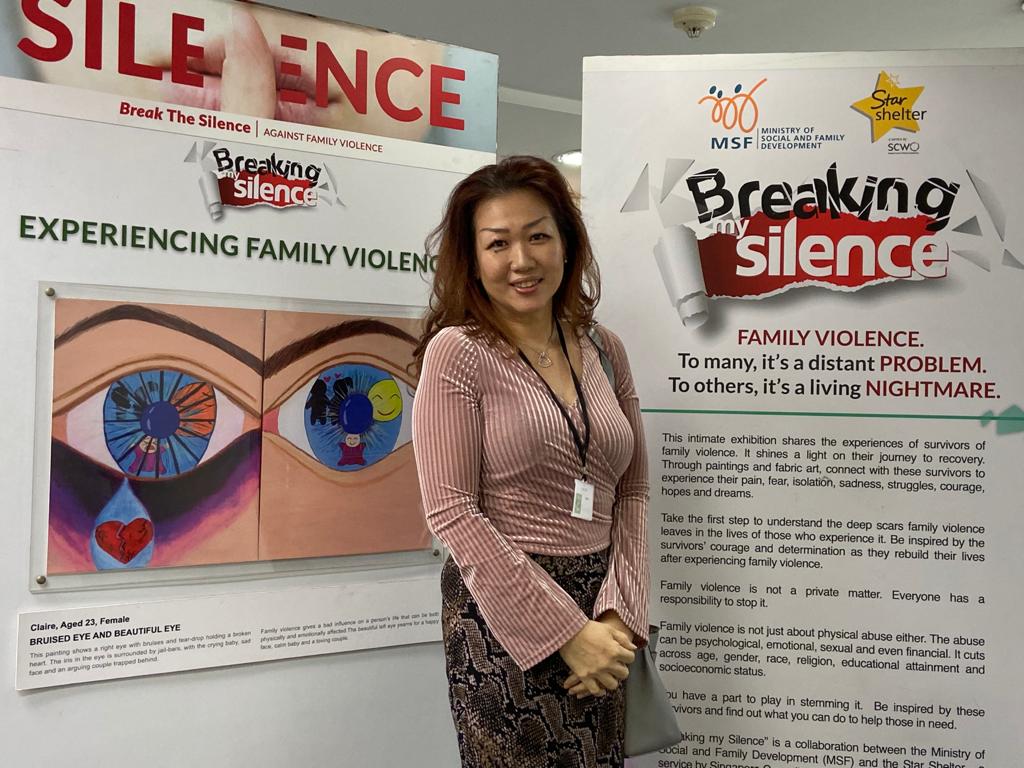For nine years, Sandra Aulia, 49, wore a “mask”, suffering in silence, pretending like nothing happened and everything was good.
Said Aulia, “I came from a belief that marriage is for a lifetime. I didn't believe in separation and divorce and I didn't understand about this ‘cycle of violence’.”
Today, however, she is a champion for women and girls alike, speaking up on her own experience of domestic violence to support various anti-domestic violence initiatives and lend a voice to the voiceless.
She shares how empowering oneself with the knowledge to determine one’s own choices can break the cycle of violence, and how the challenges she has faced have only made her stronger.
The beginning
The first incident of physical abuse happened two weeks after marriage.
Following a disagreement, her ex-husband banged her head against the wall, as he was unhappy. She said:
“I was really shocked as it was more than the physical pain. I couldn’t believe that what I’ve seen in movies was really happening to me.
I didn’t know how to deal with it because I did not grow up in an environment with violence, and this was never taught in school.”
Living on the edge
Over the years, the incidents would occur periodically, and worsen to include other common types of abuse – psychological, economical, social, and sexual.
Efforts to improve the situation, such as going for marriage counselling, did not work.
The violence continued after the couple had their first child.
“It was almost a daily occurrence. More than the physical was the psychological – not knowing if tonight was going to be a safe night for us to sleep, or if it was going to happen again.
Home was never a safe place; we were always on edge not knowing what may happen.”
Aulia elaborated on one particular incident that happened when her daughter was just nine-months-old:
“I was separated from my toddler; it was so traumatic. Aside from the scratches and the bruises, I had a black eye because he banged me onto the bed frame. I actually called the police to ask for help to stop the anger”.
Getting out
That incident ended up being the lynchpin for change.
At PAVE, the domestic abuse treatment centre where Aulia was directed to, she saw a graphic chart, which explained the “cycle of violence”, and realised she was trapped in it.
 The cycle of violence. Image via center4research.org
The cycle of violence. Image via center4research.org
Said Aulia, “It helped me understand it was a ‘condition’ I was facing and not about the person. I should no longer tolerate the violence any longer as it was not right. Once I was able to accept the ‘condition’, I could make a good decision to stay or to leave.”
Soon after, the breaking point culminated – when Aulia’s ex-husband confined her daughter again.
Not wanting to see her daughter go through the same cycle of abuse, Aulia left her matrimonial home together with her daughter in September 2011. Her daughter was just four-and-a-half years old.
Alone in Singapore, she sought PAVE for help to apply for a Personal Protection Order (PPO); something she says is important for domestic violence victims, because “when you get it [PPO], it feels like all these accusations [of being ‘ugly’, of always being blamed for things that happen] are nullified”.
Aulia also stayed at Star Shelter for a period of time, a temporary refuge where victims of domestic violence can gain support. The shelter provided everything from counselling and free legal aid, to job enhancement and placement schemes.
“It was a safe place, a guarded environment so he could not harm us anymore”.
Helping survivors in small ways
Speaking candidly about the ways the community can make a difference in supporting possible victims, Aulia says that something as simple as asking “Are you okay? Do you need help?” is good enough for a start.
She explains, “At some point, all I needed was somebody to come in and break that tension and anger so he would stop. But no one did. Being silent is like silent approval, so something as simple as somebody coming into the picture to check if you’re okay can stop an abuser.”
 A diagram explaining the “Power and Control Wheel” – tactics typically utilised by an abuser. Image via center4research.org
A diagram explaining the “Power and Control Wheel” – tactics typically utilised by an abuser. Image via center4research.org
Aulia also points to the many support services that domestic violence victims can go to seek help or advice, including PAVE, the Association of Women for Action and Research (AWARE) and more. Recently, the Ministry of Social and Family Development (MSF) also launched a 24-hour domestic violence helpline for victims and members of the public to seek help; the National Anti-Violence Hotline is at 1800-777-0000.
 Image courtesy of Sandra Aulia
Image courtesy of Sandra Aulia
She reiterates:
“Violence is never a means of conflict resolution”.
Growing better, not bitter
On her healing journey, Aulia says that it was eventually a decision, on her end, to leave. And then, to heal.
“We can grow up being bitter or getting better. I choose to be better.”
She adds that being a survivor has taught her that the only lasting relationship is with yourself – what matters is how you value yourself, your true values and character.
Other survivors of domestic violence she met at Star Shelter also helped her realise how extraordinary they were, to have come through these harrowing ordeals.
By sharing her story, she hopes to encourage a “kampung” culture again, one where bystanders proactively help to report situations of violence to break the cycle, and survivors dare to tell their story to break the silence.
The importance of self-care
In most cases, the psychological effects of family violence often end up being more long-lasting than the physical hurt. Many who have left abusive relationships find their self-esteem in tatters, and still struggle to rebuild their self-confidence.
Aulia adds, “Once we [domestic violence victims] have the confidence that violence should not be tolerated, we can stand up for ourselves.”
Cultivating self-care is thus important to value ourselves and our body, and it is within one’s own stewardship.
Aulia emphasizes, “Self-care is the basic kit of being beautiful. You can be born with all the beauty in the world, but if you do not take care of yourself, it wouldn’t work. Health and proper grooming is true beauty [in] itself.”
L'Oréal x UWS anti-domestic violence campaign
Like Aulia, L'Oréal believes that rebuilding self-confidence and cultivating self-care is important to domestic and gender-based violence victims, and their healing journey.
To commemorate International Women’s Day on March 8, L'Oréal launched its #YouDeserveBetter campaign, in partnership with United Women Singapore (UWS), to support survivors of domestic violence in rebuilding their confidence and breaking the cycle.
With more than 50 years of empowering women through beauty and self-care products, L'Oréal will provide 2,000 curated personal care kits to women from more than 10 shelters and homes in Singapore throughout the month of March, in support of survivors of gender-based domestic violence.
The kits contain high-quality skincare, haircare and cosmetic products from L’Oréal, put together for the beneficiaries with the hope that it will help them rebuild their self-confidence.
 Image courtesy of L'Oréal
Image courtesy of L'Oréal
The public is encouraged to join in the anti-domestic violence movement by supporting UWS and their initiatives, as well as using the hashtags #YouDeserveBetter and #LOréalxUWS, to share any personal experiences of how you might have helped someone suffering from domestic violence on social media.
L'Oréal believes that speaking out against domestic violence, and taking action to help those in need can build a community of care that lets survivors know they are not alone, and that they deserve better.
Organisations that are keen to educate their employees about the workplace impacts of domestic violence can also get in touch with UWS to learn more about its GenSafe Workplaces programme.
This is a sponsored article by L'Oréal.
Top image via Jia Hwee Tan and Sandra Aulia
If you like what you read, follow us on Facebook, Instagram, Twitter and Telegram to get the latest updates.
